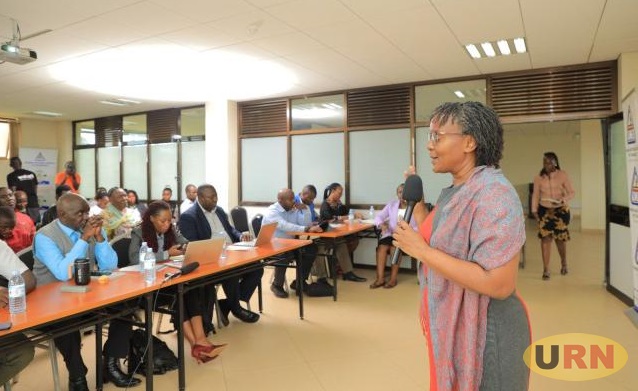
KAMPALA, UGANDA | THE INDEPENDENT | The Uganda National Bureau of Standards (UNBS), in collaboration with the Ministry of Energy and Mineral Development, has initiated the development of standards for clean and renewable energy systems and products. This move includes a review of the existing standards, which are considered inadequate due to the rapidly evolving energy sector.
The Ministry highlights that while the transition to clean and renewable energy is increasing, so is the pressure on Uganda’s forests due to population growth in both rural and urban areas. This underlines the need for a more robust transition process and regulation of the clean energy industry to ensure that products in the market are both effective and offer value for money.
Keissy Irene Atim, representing the Commissioner of Renewable Energy at the Ministry, emphasized the need to focus not only on reducing emissions but also on addressing the role of educational institutions, which are major consumers of biomass energy.
This discussion took place during the first engagement between the government agencies and entrepreneurs in the renewable energy sector. Currently, 85 percent of Ugandans still rely on biomass energy, particularly firewood, a significant contributor to deforestation and climate change.
Both UNBS and the Ministry agree that a well-developed renewable energy sector is crucial for protecting human health, especially for women and children who are more exposed to harmful smoke from firewood and charcoal.
Explaining the importance of standardization, UNBS Executive Director Eng. James Kasigwa noted that the standards contribute significantly to Uganda’s economy, accounting for 23.7 percent of the country’s GDP.
With the growing renewable and clean energy industry, including exports, Kasigwa stressed the importance of maintaining strict product standards. “We are not going to allow you to export substandard products because we have to protect the image of Uganda,” Kasigwa stated.
The sensitization workshop focused on curbing substandard clean cooking products in the market, aligning with UNBS’s mandate to protect consumers from dangerous and low-quality products.
Deputy Executive Director, Patricia Bageine Ejalu, assured the private sector that the goal was not to hinder technology and innovation, but to ensure that products meet health and safety standards. She stated that with the rising population and urbanization, it is crucial for manufacturers and dealers to understand what is required to produce quality products.
Bageine added that, over time, only products bearing the Q-mark — the UNBS symbol of quality certification — would be allowed on the market.
The initiative has been welcomed by the industry, with many producers and dealers noting that it will help clarify the standards they must adhere to. Jim Ssebaduka, Chairman of the Uganda National Alliance on Clean Cooking, stated that the standardization would promote fair trade.
He added that currently, anyone can bring any product to market, undermining quality and putting consumers at risk. However, Ssebaduka urged UNBS to improve its image, particularly among small and medium enterprises (SMEs) and startups, who fear approaching the agency due to the perceived harshness of enforcement teams.
Ssebaduka also called for standards that reflect Uganda’s cultural, income, and geographic diversity. He stressed that a “one-size-fits-all” approach would not work for such a diverse population.
****
URN
 The Independent Uganda: You get the Truth we Pay the Price
The Independent Uganda: You get the Truth we Pay the Price





